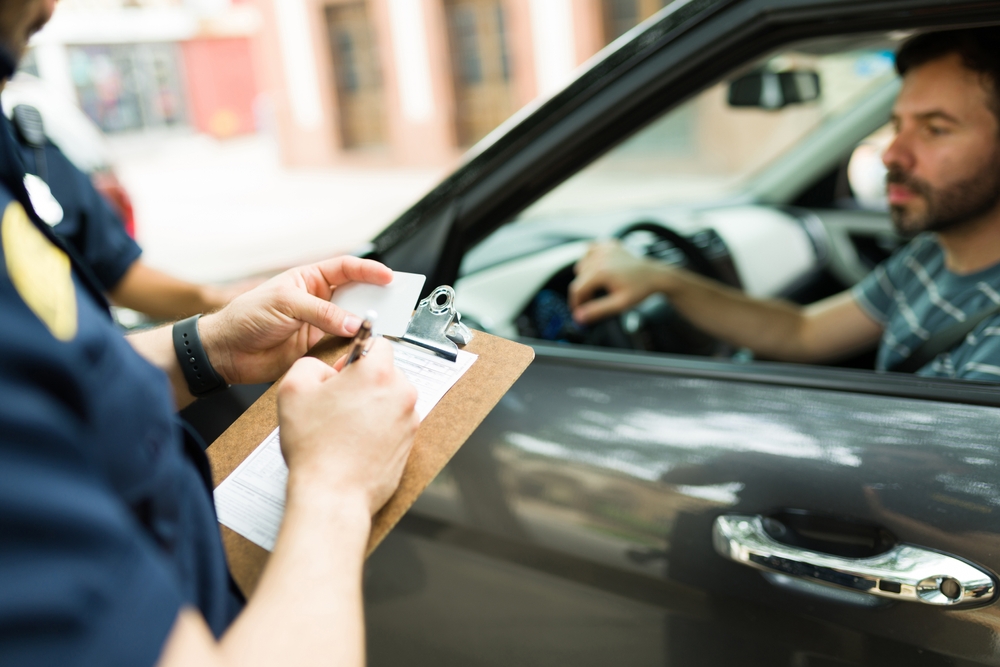
When I was younger, I had my fair share of run-ins with the police (mostly due to modifying my car to be a racecar). And it’s true. Police officers do target certain cars more than others. It could be the sporty look of it, how loud it is, or what color it is. It could also just be the person they see driving it, among other things. Studies and insurance data point to specific models being ticketed at higher rates, and unfortunately, men tend to drive those cars more than others. So, what’s behind this pattern? Here’s what we’ve uncovered.
The Way Your Car Looks Has A Lot To Do With It
Sports cars are built for performance, and that performance comes with a reputation. Cars like the Dodge Charger, Ford Mustang, and Subaru WRX are consistently at the top of ticketing lists because officers associate them with speeding. Insurance data backs this up, too. These cars have higher claims for moving violations, meaning drivers often push them to their limits. Even if you’re driving the speed limit, the car itself signals “fast driver.” To law enforcement, that can be enough to raise suspicion, especially on highways where speed traps are common.
It might sound trivial, but car color plays a bigger role than most drivers realize. Bright red, yellow, and neon-colored cars stand out in traffic and naturally draw the human eye, including an officer’s. One person wrote on Facebook, “I had a ford fusion wrapped neon orange, got pulled over 6 times in a week, not for speeding or anything like that. Never even ended up with a ticket but was always getting pulled over. Eventually went back to having it black because it was too annoying.” Although white cars are technically pulled over more, it’s really only because there are more of them on the road. While color doesn’t cause infractions, it increases visibility, and visibility leads to scrutiny when police are scanning traffic for violations.
Certain aftermarket modifications practically invite attention from law enforcement. Tinted windows, loud exhaust systems, LED underglow lights, and oversized rims all send visual cues that the car might be used for aggressive or illegal driving. While not all modifications are unlawful, many fall into gray areas that depend on local regulations. Men are statistically more likely to modify their cars, particularly younger drivers who value performance aesthetics. To officers, those mods can look like probable cause for a closer inspection or even a ticket.
Insurance and Crime Data Influence Patrol Priorities
Police departments often rely on regional data to identify “high-risk” vehicles linked to accidents or crimes. For instance, older Honda Civics and Toyota Camrys are frequently targeted not because their drivers are reckless, but because they’re among the most stolen cars in America.
When a car model shows up repeatedly in theft reports or high-speed chases, officers naturally pay closer attention. Men tend to drive many of the models flagged by these datasets, reinforcing the perception that they’re worth monitoring. In this case, profiling is driven more by probability than prejudice.
Aggressive Driving Habits Raise Red Flags
Let’s be honest… driving behavior still trumps the type of car. Men, particularly between the ages of 25 and 45, statistically commit more moving violations than women, according to multiple traffic safety reports. Rapid lane changes, tailgating, or quick accelerations all trigger an officer’s radar long before a car’s make or model does.
The issue is that certain cars, like performance sedans and muscle cars, tend to amplify those behaviors. In short, police may not be targeting the car, but rather the type of driver who typically owns it.
Socioeconomic Stereotypes Still Play a Role
While no officer will admit to bias, stereotypes about who drives what type of car can subtly influence decisions. A middle-aged man in a luxury sedan may be viewed differently from a young man in a beat-up coupe with a spoiler.
Law enforcement training tries to eliminate profiling, but subconscious associations still creep in. Some officers assume expensive or modified cars mean overconfidence, while others associate older, cheaper vehicles with criminal activity. The result is uneven enforcement that feels personal, even if it isn’t meant to be.
Rural vs. Urban Enforcement Priorities
Where you drive can also affect how closely police watch your vehicle. In rural areas, lifted trucks and loud exhaust systems are common and sometimes tolerated. But take that same truck into a suburban or city environment, and it might draw immediate attention for noise or emissions violations.
Urban officers tend to focus on speeding and lane violations, while rural deputies monitor reckless off-road driving or DUI risks. The environment shapes enforcement just as much as the car or driver.
What This Means for Drivers Who Want to Avoid Unwanted Attention
Understanding why police target certain cars can help you avoid unnecessary stops. Keeping your vehicle street legal, your modifications compliant, and your driving habits calm can go a long way. Avoiding flashy colors or overly loud setups can also reduce visibility in the wrong kind of way. And remember, respect on the road (toward both officers and fellow drivers) tends to be reciprocated. The best “stealth” car isn’t just one that blends in; it’s one driven with common sense and restraint.
Do you think police unfairly target certain cars, or is it justified based on data? Share your opinion in the comments below!
What to Read Next
- 6 Things Men Should Never Say During an Argument With Police
- 9 Driving Habits That Police Target Instantly
- 10 Truck Upgrades That Police Quietly Track on Roads
- 9 Questions You’re Not Legally Required to Answer During a Police Stop
- Things Men Keep in Their Trunks That Instantly Raise Police Suspicion
The post Why Do Police Target Certain Cars Men Drive More Than Others? appeared first on Clever Dude Personal Finance & Money.







